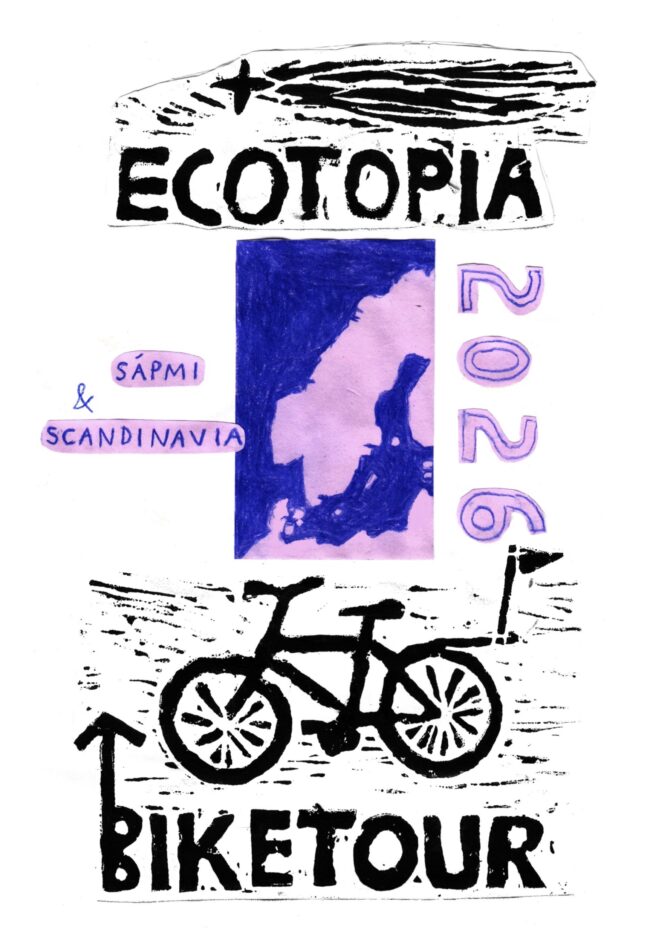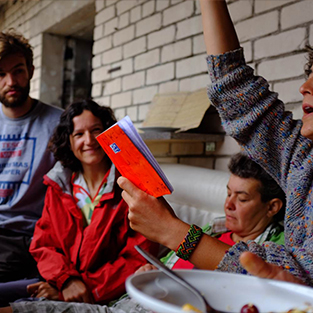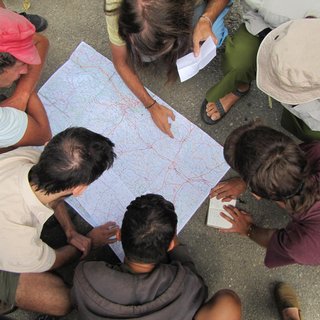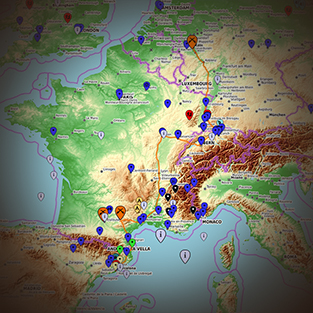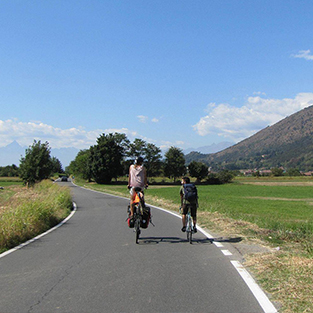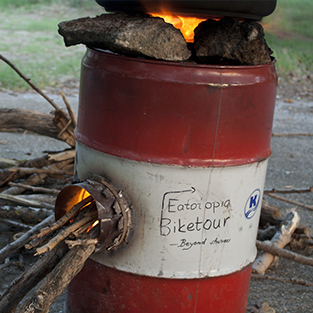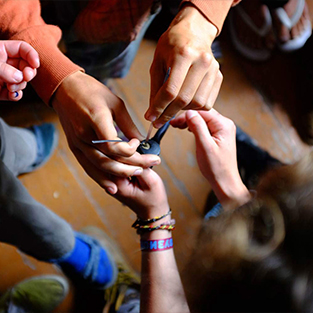Ecotopia Biketour
We try to make the tour as inclusive as possible for any level of fitness or experience with bike touring. We cycle a maximum of 30–70 km per day (depending on the hills), and on average half of the days we stay in a place without cycling. Our experience is that almost everyone can manage this, but there is the possibility to shorten the distances if we discover that it is too much. People cycle in small groups or alone, at whatever speed suits them, and many people like to take it slow and take lots of breaks. A detailed route plan for the day is shared in the morning, arrows are drawn with chalk on the road at every turn, and if you get lost you can always call the Biketour phone. If you have a shitty bike, you will not be the only one, and we enjoy supporting each other if something breaks. We make sure that the last people to leave carry a toolbox, a phone and a first-aid kit in order to assist if anything goes wrong on the road.
Read more about what the Ecotopia Biketour is. If you would like to get an insight into the organisation or just ask a question, contact us.
Ecotopia Biketour 2026
Ecotopia Biketour 2026 will happen in Sápmi and Scandinavia.
Read more about our plans on the page.
Latest blog posts
Resilience and Reconciliation (Prague…)
On entering Prague we were joined by someone from the local Critical Mass network, who after a quick rehearsal in how to create a critical mass, decided that the 50 strong cyclists were enough to take on the highway into the capital city of Czech Republic! This was our first self made Critical Mass so far and for some their first, with 3 people setting the pace at the front … S L OOOOO W L Y!… then 10 blockers who smiled sweetly as they blocked off the side roads to let the mass of cyclists through as though we…
Wagon Tales…Outdoor Cinema
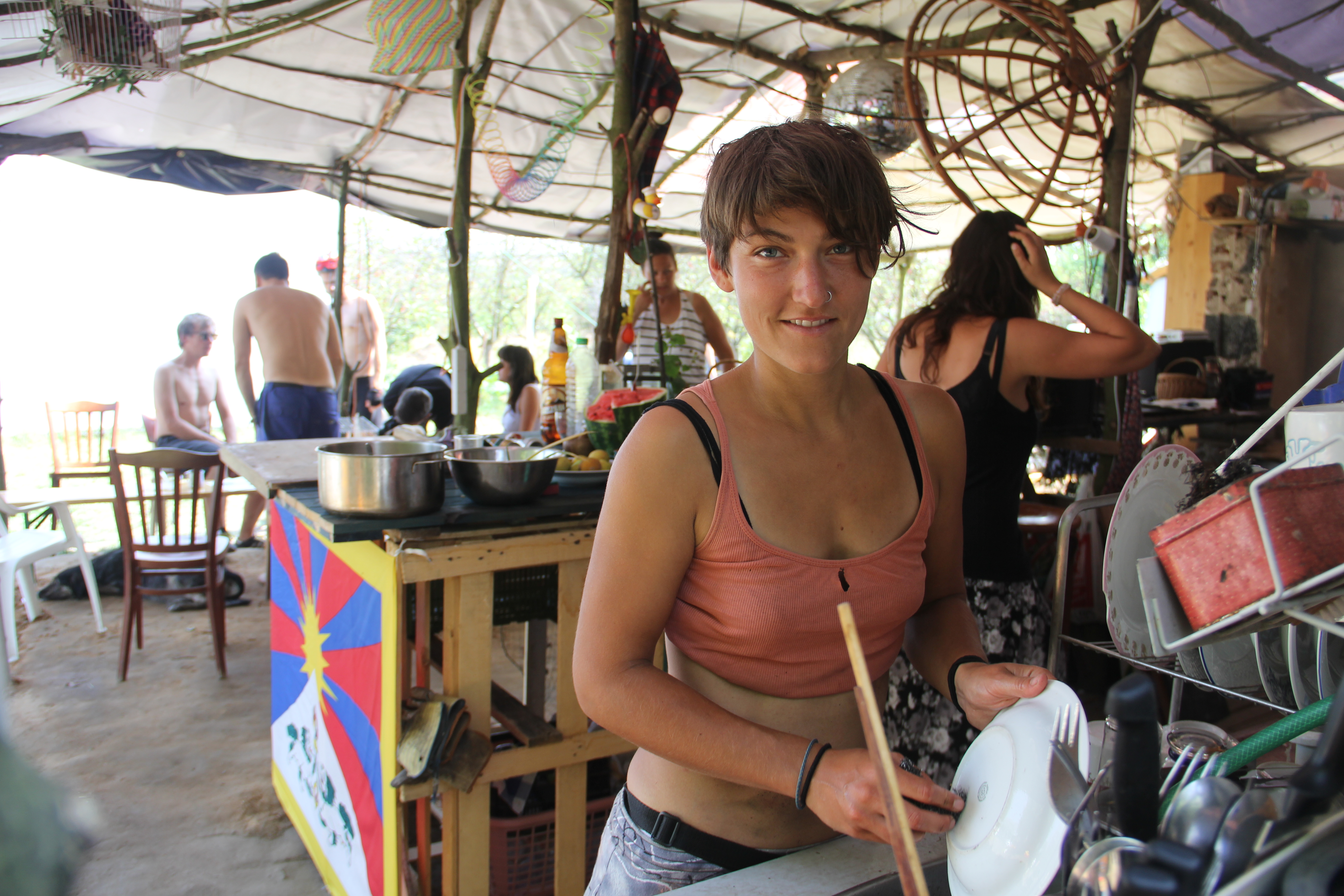
On leaving Usti we made it along the Elbe to a secluded Wagenplatz through a contact we had made in Prague. Here they were preparing for a festival of local community projects, which we unfortunately could not attend but, after supper, which was prepared there for us, we shared some films on their open air cinema. More is written about this and the films in a later post…
NE RASISMU! Roma Children’s action in Usti
In Usti we were invited to join a group of activists, NE RASISMU!, from Usti and Prague that are concentrating on Roma racism, anti-ciganism, and antifascism, to learn about the situation tere from the people directly involoved. We met the group at one of the biggest ‘ghettos’ in Czech Republic; Predlice in the city of Usti nad Labem. Due to privatization of housing, systematic discrimination and also generally very bad living conditions of Roma people there, the actual situation can be seen as the beginning of humanitarian crisis. The group met us with instruments, circus props and footballs, in preparation…
Border messages by satellite…. Border Crossing #1
Next day was our first border crossing from Germany to the Czech Republic… marked unassumingly by a small EU sign. But once we had crossed, the visual signs became more clear, and the landscape more wild. Actually the first thing that marked the crossing was a small reminder from our mobile phone providers, followed by Vietnamese tourist shops selling knickknacks from baseball caps to huge plastic Bambis. The route that afternoon was incredible, despite an accident with one of the ambitious trailer pullers who decided to follow the more off-road route option through the National Park. Our final destination was…






